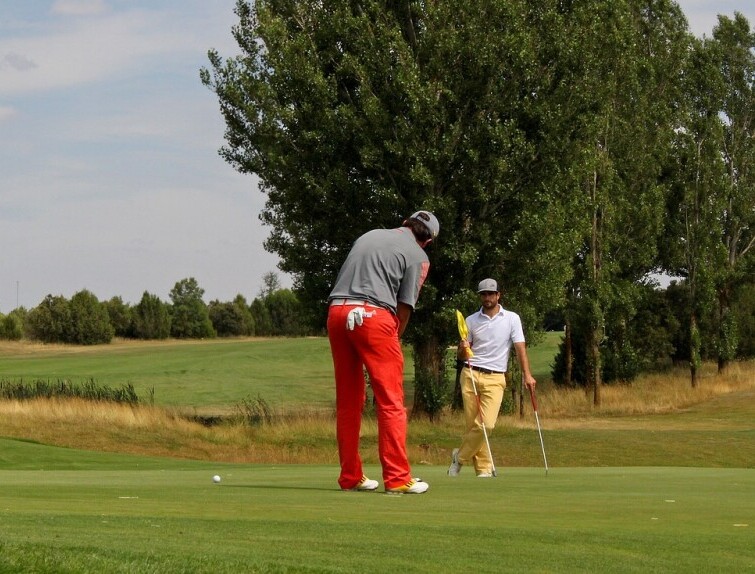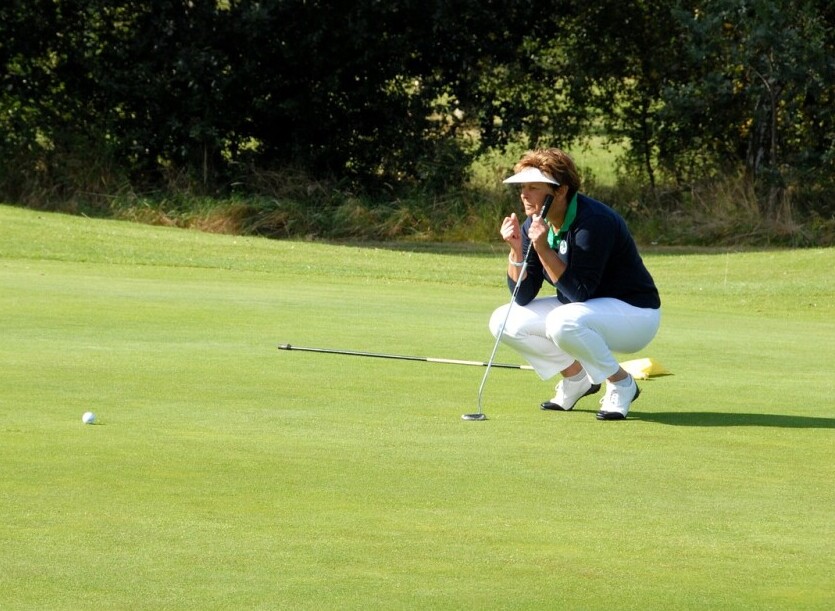
Fore! Quick note: a few links here are affiliate links. If you snag gear through them, I earn a small commission — no extra strokes added to your game.
Matchplay in golf is like a one-on-one showdown between golfers, where the goal isn’t just about getting the lowest score across the whole course but rather winning individual holes. Each hole is a mini-battle, and whoever finishes the hole with the fewest strokes wins that hole. If both players take the same number of strokes, the hole is halved. This format creates a dynamic and fast-paced game that’s both thrilling and strategic. This is the golf viking here, and we’re talking Matchplay.
The history of match play dates back to the very origins of golf in Scotland. It’s one of the oldest forms of the game, with many prestigious tournaments still using this format today. Big names in the golf world, like the Ryder Cup and the Presidents Cup, showcase the exhilarating nature of match play, where national pride and personal rivalry take center stage.
Match play is quite different from stroke play, the format most golfers are familiar with. In stroke play, every stroke counts towards a total score over the course of the round, with the lowest score winning. Match play, on the other hand, focuses on individual holes, so a bad hole doesn’t doom your entire round. This can lead to more aggressive and exciting play, as golfers take risks they might avoid in a stroke play event. This makes winning each hole the most important thing, and players don’t have to worry as much about particular strokes that could ruin their scorecard in stroke play.
Some of the most iconic golf tournaments feature match play. The Ryder Cup, a biennial competition between teams from Europe and the United States, is one of the most famous and hotly contested events in the sport. The Presidents Cup and the WGC-Dell Technologies Match Play are also notable for their match play format, showcasing top golfers in head-to-head battles. These tournaments highlight the unique strategies and psychological battles that make match play so engaging. Let’s go over the rules.
Match play scoring is different from stroke totals. Compare the two by reading what is stroke play in golf?
Ready to level up your golf game? Click here.

Rules and Mechanics of Match Play
Match play scoring, unlike traditional stroke play, is straightforward yet fascinating. Each hole presents a new opportunity to win a point. If you use fewer strokes on a hole than your opponent, you win that hole and earn a point. If both players are tied, they halve the hole, and neither gains an advantage. At the end of the round, the player with the most points wins. So it’s more about winning a hole over your opponent rather than hitting the most strokes over the course of a round of golf.
One unique aspect is that the overall score doesn’t matter as much. This means a disastrous hole or two won’t ruin your entire game, offering a psychological edge that favors resilience and bravery over consistency. It’s all about winning individual battles rather than waging a war of attrition. Getting 8 strokes on a hole won’t ruin your chances as much as it would in stroke play where it could put you behind for good.
There are also some cool and slightly different rules that govern match play. For example, you can concede a hole to your opponent at any point, an honest admission that they’ve outplayed you on that specific hole. This is unique and can save you some torment on a bad hole. You can concede the hole and move on, if you don’t want to drag out a hole that you already know you lost.
Alternatively, putts can be conceded, meaning you can forego making your opponent take a short putt if you believe they’d make it anyway. These elements add a layer of sportsmanship and strategy. It can also help make the round go quicker.
Match play strategy involves more head-to-head tactics than stroke play. Each player’s performance directly impacts their opponent. If you know your opponent struggles with short game, like putting or chipping, you might play to that weakness. Aggressive strategies can create pressure moments, forcing errors from your opponent. Understanding when to play safe and when to go all-in could be the key to winning the match.
Different situations call for varying responses. For example, a classic scenario is being ‘dormie,’ where you’re up as many holes as there are remaining. This can be a leverage point, creating pressure on your opponent to win every remaining hole to force a playoff. Learning how to navigate these moments is crucial.
The rules in match play can differ significantly from stroke play, mostly in how they handle penalties and resolving disputes. For instance, if a player accidentally moves their opponent’s ball, there’s a penalty. Know these quirks can save you from unnecessary strokes and give you a mental edge during the game.
Even in match play, knowing the fundamentals is key. Review the basic rules for golf to avoid losing holes on penalties.

The Appeal of Match Play
One of the major draws of match play is its exciting and unpredictable nature. Each hole is a fresh start, which means players can quickly turn the game around. This creates a dynamic environment that’s full of tension and drama, keeping both players and spectators on the edge of their seats. It’s much more forgiving on a player that has had a bad hole than stroke play.
Emotionally and psychologically, match play is a different beast. There’s an intense one-on-one aspect to it, where you’re not just playing the course but also your opponent. This adds an extra layer of strategy, as you need to stay mentally strong and adapt to your opponent’s game. The head-to-head competition can heighten focus and engagement, making every shot count that much more.
A lot of golfers find match play to be incredibly rewarding because of the tight, competitive atmosphere and the camaraderie it fosters. There’s a strong sense of sportsmanship, as conceding putts and holes shows respect for your opponent’s skills. This mutual respect can create lasting friendships and rivalries that add a meaningful social dimension to the game.
Match play keeps things fresh and challenging. Golfers who usually play stroke play might find match play a refreshing change. It forces you out of your comfort zone and encourages more aggressive play styles. The need to win individual holes can lead to creative shot-making and bold risks, putting a fun twist on the traditional game.
Professional golfers often share stories about their match play experiences, highlighting the unique challenges and memorable moments. These anecdotes provide inspiration and insights into the complexities of match play. Watching or reading about these pros can give aspiring golfers a taste of what makes match play so special.
In the broader spectrum, comparing match play with other golf formats really showcases its standout features. While stroke play emphasizes consistency and cumulative performance, match play shines in its ability to reward adaptability and mental toughness. The constant back-and-forth keeps the energy levels high and the game thrilling.
Handicaps are often used to level the playing field in match play. Understand the system with what is handicap in golf?